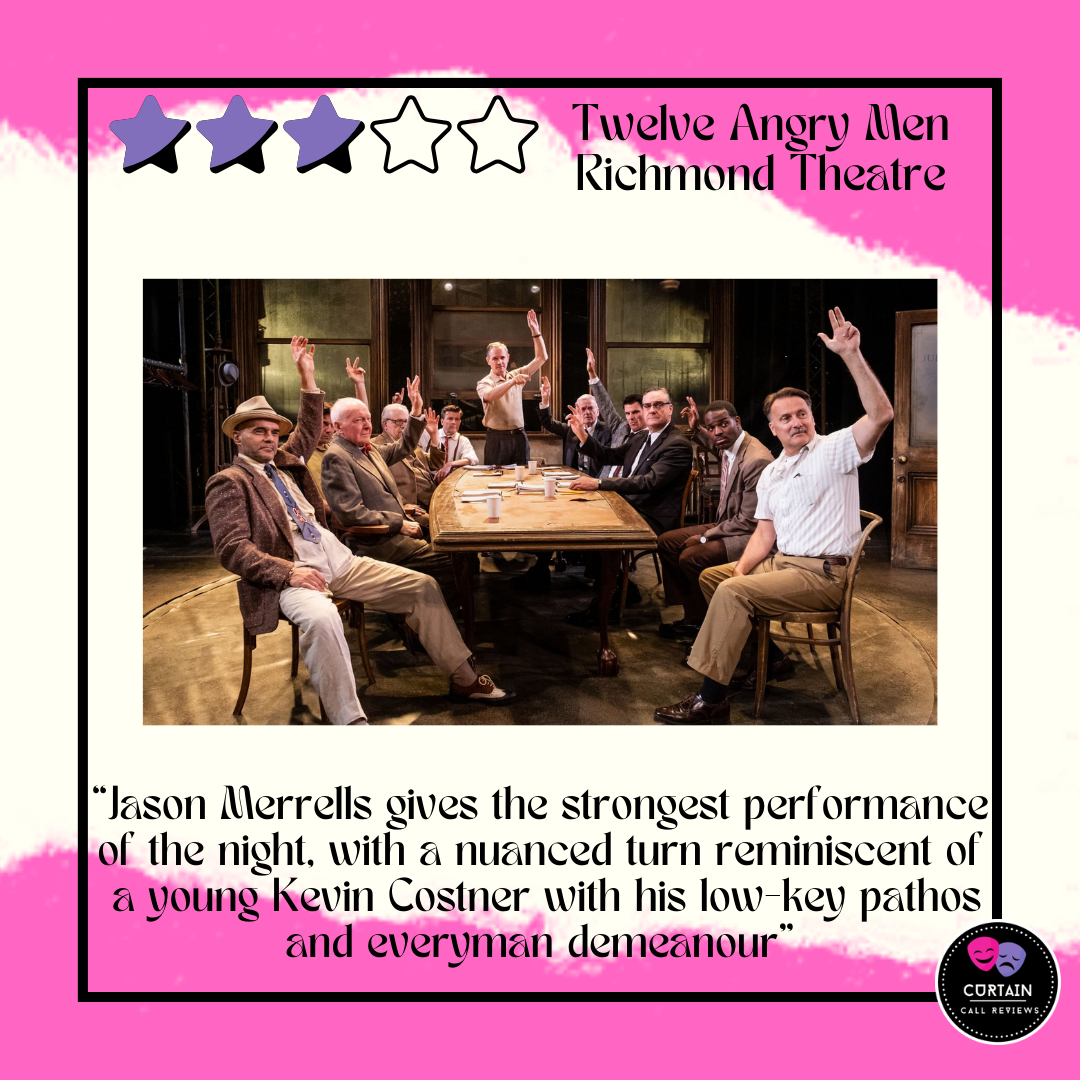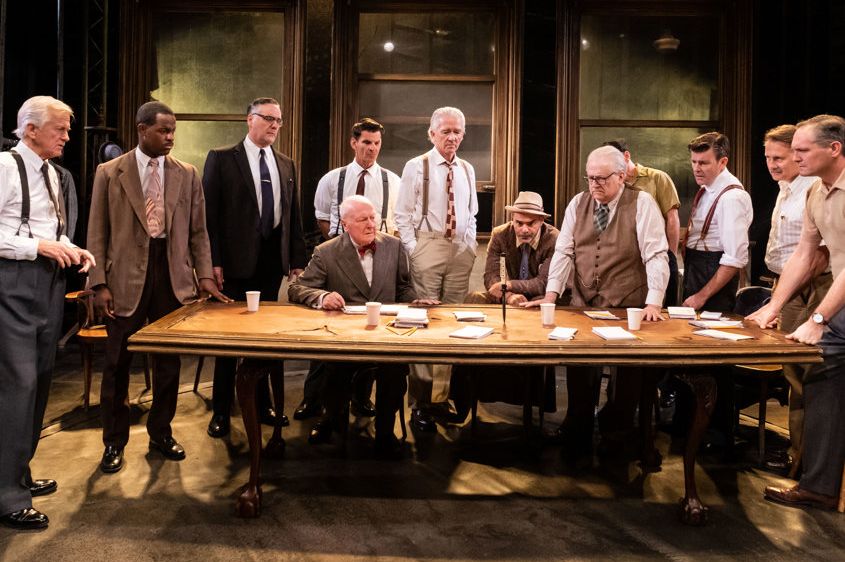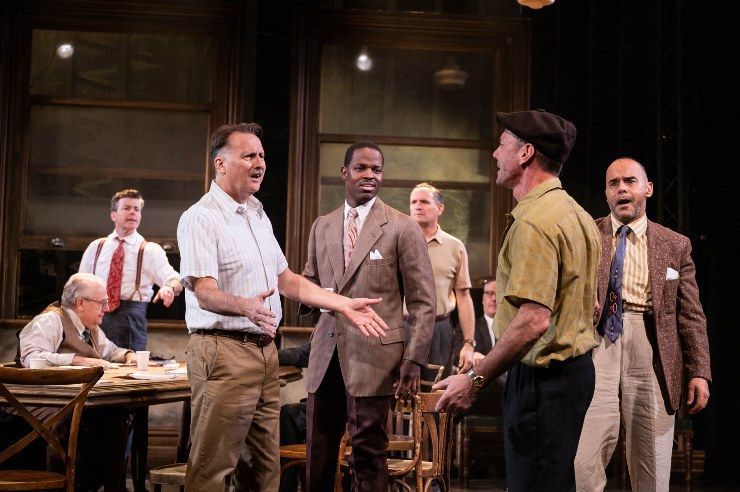
Twelve Angry Men
There can be no reasonable doubt: these are the words that ring significantly in Reginald Rose’s TV play, which was made famous on screen in Sidney Lumet's iconic screen adaptation. Twelve men are given the task of deliberating the fate of a young Latino boy charged with killing his father. Evidence is circumstantial and witness reports are unclear. As an audience member, we are plunged right into the heart of the debate, having heard none of the trial that came before. The play opens with our jurors being shown through a gauze whilst the haunting instructions of the judge are heard, brilliantly setting up the stakes of the play. It is a terrific structure that forces the audience to display objectivity (something which is in our nature to dispel against). This largely works in a terrifically paced, if slightly uneven piece of theatre.

As a piece of writing, Rose’s text on morals and compassion feels every bit as relevant today, with discussions on race and what frightens men, is what they don’t understand. Christopher Haydon grasps this fully as a director and gives each Juror their time to shine. I was also impressed with his use of staging, taking every advantage of its limited setting. It took myself the majority of the first act to notice the intricate use of a revolve, giving every character their moment in the sun. Praise must also go to its sound design by Andy Graham, whose use of the low rumbling of a fan highlights the tension of the story.
As an ensemble piece, the show rests and falls on the strength of its cast. Our protagonist, a compassionate and justice-seeking juror is the only one to give an innocent verdict at the start and allows us as an audience to follow along with the nuances of the case. Jason Merrells gives the strongest performance of the night, with a nuanced turn reminiscent of a young Kevin Costner with his low-key pathos and everyman demeanour.
His personality comes head-to-head with the hot-headed juror 3, who has his own personal prejudices. For me, this is where the play stumbles in its approach: whilst competently played by Tristan Gemmill, his performance is entirely on one level and the constant shouting verges into the realms of pantomime. This is a real shame as his character has great material and the impactful writing of the play's denouement does not have the same effect here as it does in its iconic 1957 screen adaptation.
It’s hard to blame the actor, as this seems to have been a directorial approach for the rest of the ensemble (by and large). Most of our supporting players are played with such broad strokes that there is a lack of subtlety in the relationship between guilty and innocent and you never find yourself debating the verdict yourself.

Despite this central misstep, there are some other fine performances: the play's discussions on prejudice are empathised by the casting of Samarge Hamilton, the only person of colour on the jury, and Paul Beech as an elderly German watchmaker whose discussions of experiencing discrimination first-hand are subtly handled and performed with suitable nuance.
Despite not giving a resounding verdict myself, Twelve Angry Men remains an important and powerful story on humanity and the importance of truth and justice, and I believe its message is something society could all do with following.
This show was reviewed on the 5th February 2024 at the Richmond Theatre where it runs until the 10th February 2024. Tickets available here: Twelve Angry Men Tickets | Richmond Theatre in Greater London | ATG Tickets
Full tour details here: Twelve Angry Men – 2023 UK Tour - Bill Kenwright Limited
Review written by Alex Farley
AD/Gifted
Photo credit: Jack Merriman